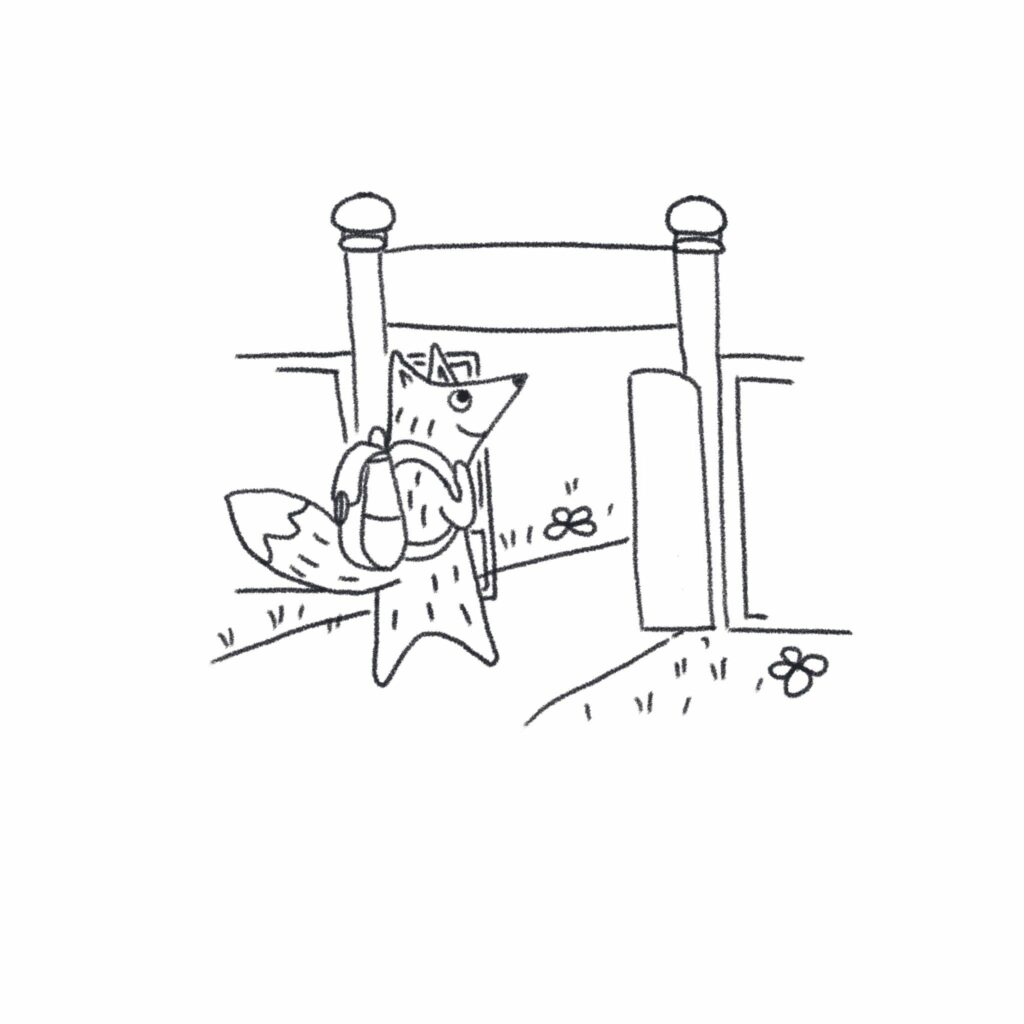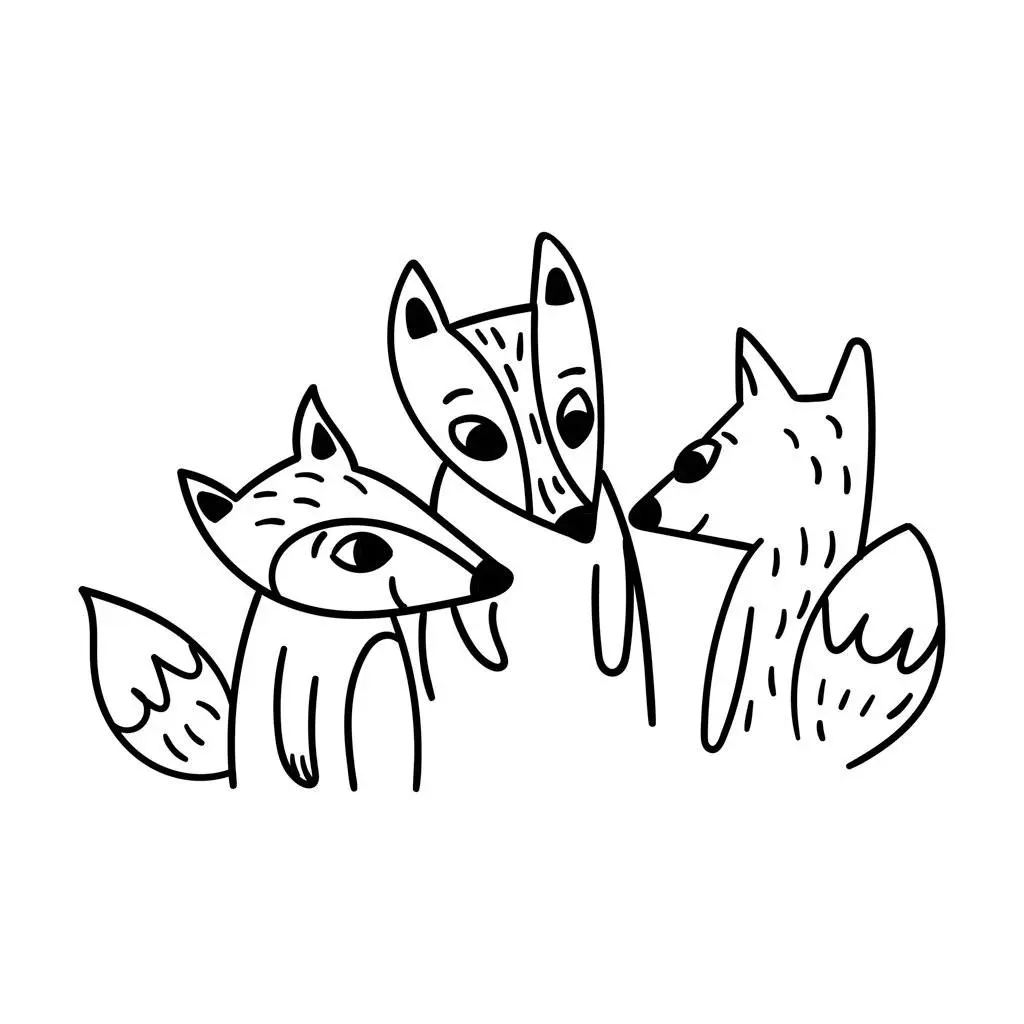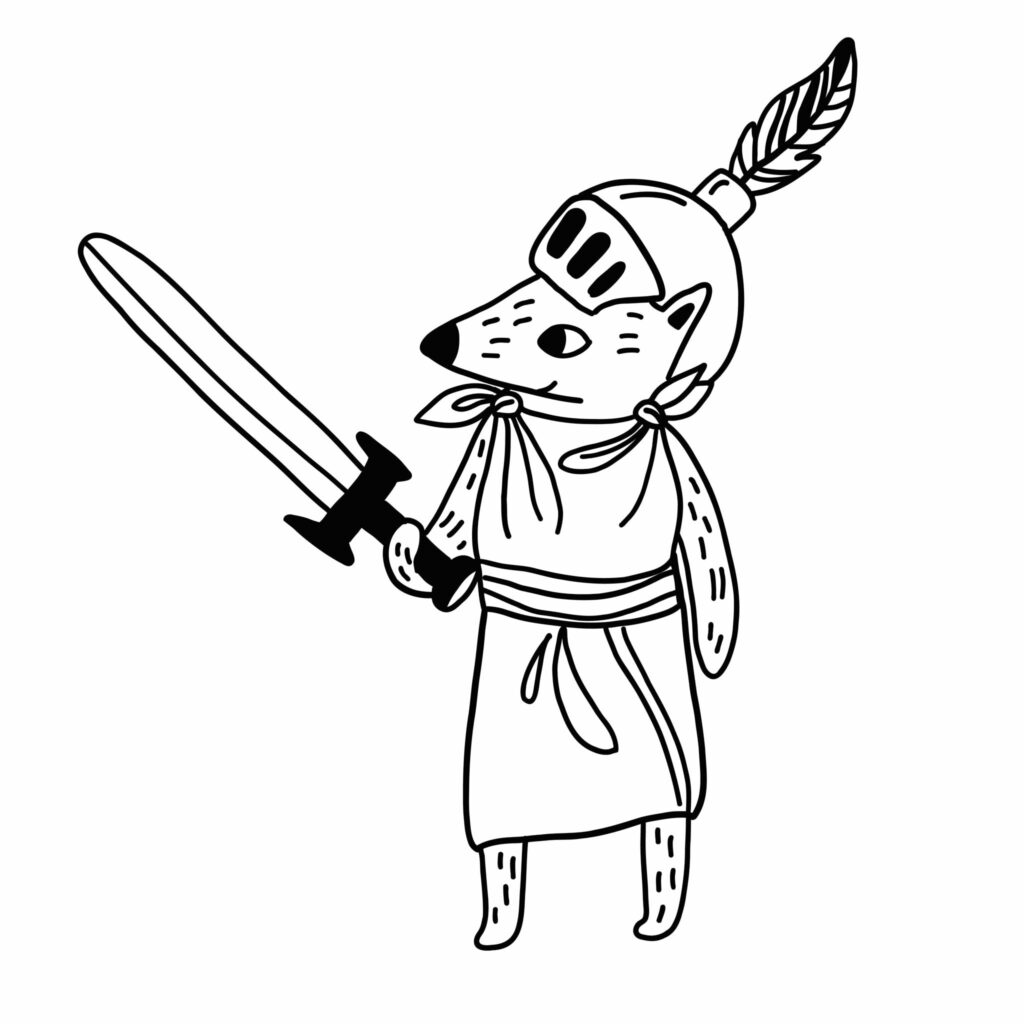Role-play was part of our own childhoods but does it still have something to offer today’s children and if so, how can we encourage it at home? Dr Helen Jones sets the stage:
Table of contents:
Introduction
As a child I spent countless hours taking refuge from the world in the security of my own imagined role-play scenarios. I was shopkeeper, chocolate factory owner (my personal favourite), nurse, doctor; you name it, I played it.
Now history is repeating itself as I watch my daughter and my nieces enjoying this age-old practice together. But in this age of information overload, screen addiction and media bombardment, what does role-play have to offer today’s children?
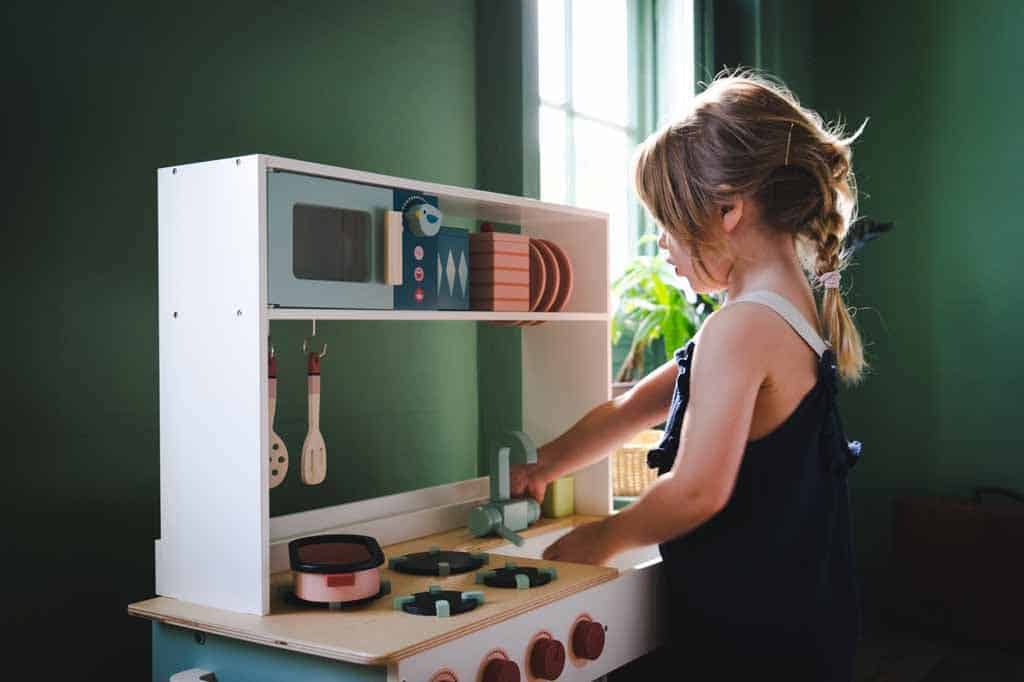
Why role-play?
Role-play allows children to escape from the bounds of time and space into the realm of fantasy, and can be indulged in anywhere, any time, with ease and relatively little equipment.
As an art teacher, I can’t help but see the links with the creative, trial and error, non-goal-orientated process of art and theatre. Perhaps this is why I find it so appealing, and why it is such an integral part of our educational curriculum.
From nursery, all the way through pre-school, primary and even secondary school, we ensure children take part in performance and drama studies. And even when the teachers aren’t there, role-play comes naturally to many children, whether with siblings, parents, friends or alone. So why is it so important and why do children love it?
Here are just a few of the reasons why:
Creativity and imagination.
Role-play is an endless game of ‘what if?’. Writer and poet Michael Rosen says in his Book of Play: ‘What’s astonishing is the sheer amount of imagination we have, and it enables our young selves to see possibilities everywhere. Dramatic play is often a child’s first foray into exploring that creativity and pushing the boundaries’ Through role-play, children learn to take risks and solve problems in an open-ended way, often resulting in longer periods of fascination.
Empathy.
Children can explore situations from their own or another person’s perspective, learn about the culture of others and develop a greater understanding of their own culture. They learn more about relationships; they visualise social scenarios, act out ways of responding to issues, and become better able to deal with conflict.
Self-confidence and self-esteem.
When children choose role-play scenarios they often impersonate characters who are quite contrary to their natural personalities – they could assume a more authoritative persona if they’re usually submissive, or inhabit an outgoing, confident role if they’re an introvert and vice versa. This is crucial for developing confidence and emotional flexibility.
Symbolism.
‘Part of the essence of role-playing is that we learn (or we are taught), how to symbolise what’s around us.’ says Rosen. ‘ In dramatic play, a child does this through making an object stand in for something otherwise unattainable [such as a cardboard box representing a rocket, or space machine]. The ability to project an idea onto a physical object teaches a child something valuable; as we grow up, we increasingly have to rely on symbol systems to understand and navigate the world around us.’
Therapy.
Children learn to express ideas, feelings and anxieties through role-play. In fact they can even overcome their fears. A child who is petrified of the dentist can act out dentistry scenarios, conquering their fears through rehearsing what happens at the dentist and possible responses. This is a particularly poignant lesson within our current pandemic. What escapisms and reconciliation might children find through dramatising the situation they find themselves in?
Social skills.
Children can learn to collaborate with other children and adults by co-acting. Knowing how to work together, how to take turns, how to reciprocate, are crucial life skills. But even solo role-play, through modelling multiple perspectives, can help build social insight and understanding. And let’s not forget these social skills have close overlaps with moral development. Dramatic play in this way becomes a safe play ‘for us to wonder about right and wrong, fair or unfair, safe or unsafe, sensible or not sensible and so on’ says Rosen.
Reflection.
Children get to play a part in observing and assessing both their own and others’ learning. They reflect on who they are and who they certainly are not, how they identify with different characters, and how adopting a new persona makes them feel.
Cognitive development and decision-making.
Fluid, quick thinking and decision-making are all part of the improvisational nature of this form of dramatic play. By free-wheeling a myriad of acting choices, children strengthen their development in a range of disciplines: literacy through language use, maths through counting and telling the time as well as creative skills. They constantly construct and reconstruct their understanding of the world.
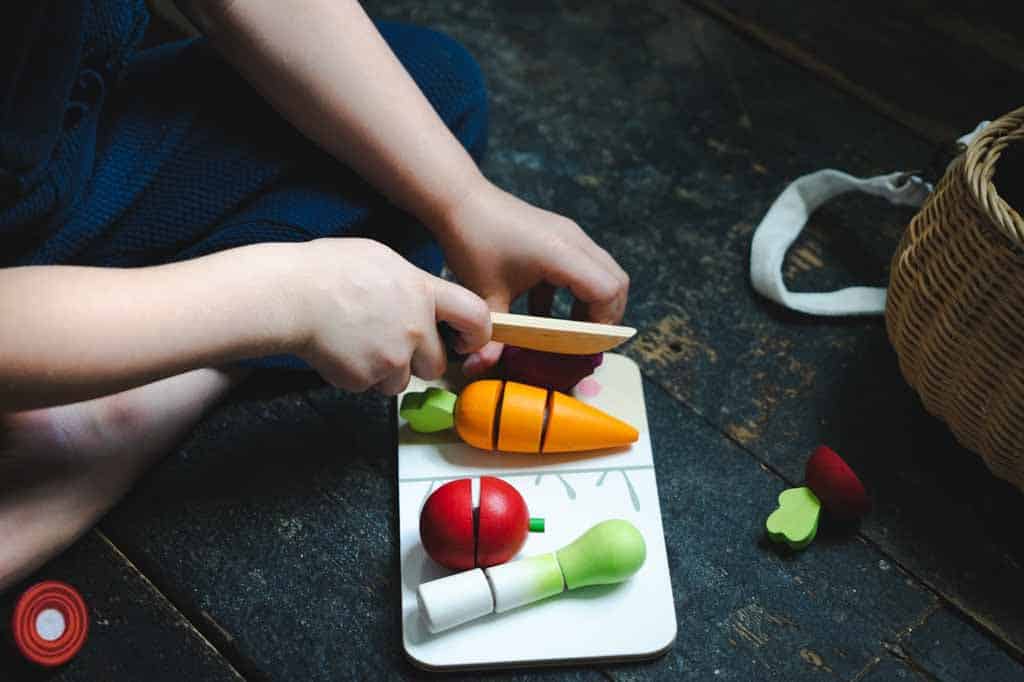
The three types of role-play
Role-play can take place in many different contexts, with or without props, individually or in a group and may be based on real experience or fantasy. That said, three predominant types of role-play are often observed:
Domestic play
Exploration of home and family, such as chores and familial relationships
Transactional play
Where goods and services are exchanged for money, such as in shops, travel agents, vets, post office.
Imagined worlds
Those places where stories dwell, or places the children are unlikely to be able to visit, such as the moon or under the sea.
Children are most likely to engage in play that explores the real world around them, thus domestic and transactional play are very common. Yet imagined-world play offers more of a sense of escapism at times. They all have their place. Yet in settings when more than one of these types is offered, the play which develops can often be deeper, more complex and more intense, giving richer experiences for your children.

The main event: Tips for role-play
Understanding the importance and place of role-play is all well and good, but how do we support it?
Repeat Repeat.
Allow children to repeat the same role-play – even if it seems repetitive to us, they need time to ‘play themselves out’ without being told to do something new today. When children have drained the last bit of learning out of the scenario they have been exploring, they’ll move on.
Give advanced warning of finish time.
This type of mesmerizing, open-ended play can have children absorbed for hours, so it’s worth giving plenty of notice and gentle reminders about when they need to stop. This shows you value what they are doing enough to not cease it instantly, but there is also a limit to what is practically achievable in a day.
Make experiences real.
If children are acting out a shop environment, next time you go to the shops include them and make sure they see the transaction taking place or if they’re acting out being a physician, next time you go to the doctors bring them with you.
Show you value it.
You need to walk the fine line between interfering and not being interested enough. Take the child’s lead – do they want you to play a character? And if not perhaps just the occasional encouraging comment is all they need. Ask open-ended questions: ‘Why does the doctor feel that way?’ Some children might need more encouragement to engage in role-play. Others may feel valued, listened to and taken seriously just through your observation of them and supportive comments.
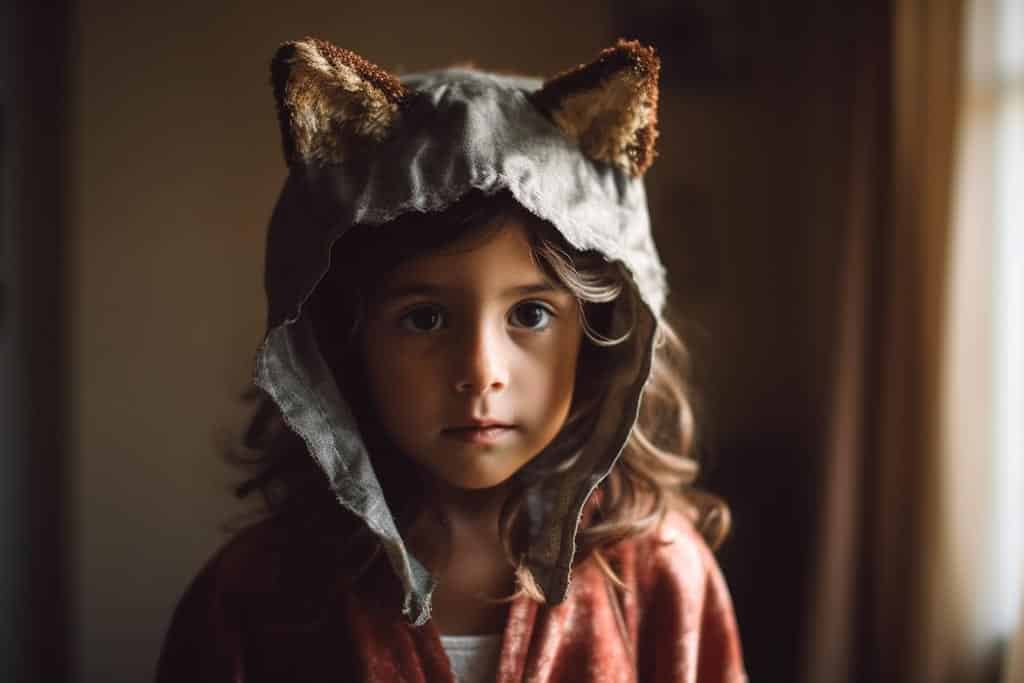
Dressing up and props box.
All three types of role-play can be provided through whole-body, full sensory exploration, with dressing up clothes and life-sized equipment, from pots and pans to doctors’ stethoscopes. Also tents, gazebos and parasols are great space providers for outside play.
Make role-play eco friendly and cost effective.
Use recycled items by repurposing food packaging for ‘shop’ play scenarios, dry pasta for ‘cooking’, large cardboard boxes as spaceships/vehicles/washing machines, and old clothes/jewellery/hats as costumes. Charity shops can also provide a thrifty treasure trove of endless role-play scenario possibilities, enhancing the life of once loved items, reducing waste, and giving back to charity all at the same time.
Give children the option.
Not all children readily engage in role-play and nor should they be forced to. However perhaps the children that shy away from dramatic play more noticeably, are the ones who may benefit from its confidence inducing effects the most. While we can’t coerce, we can set up opportunities for this type of acting, with some of the aforementioned props and gentle encouragement.
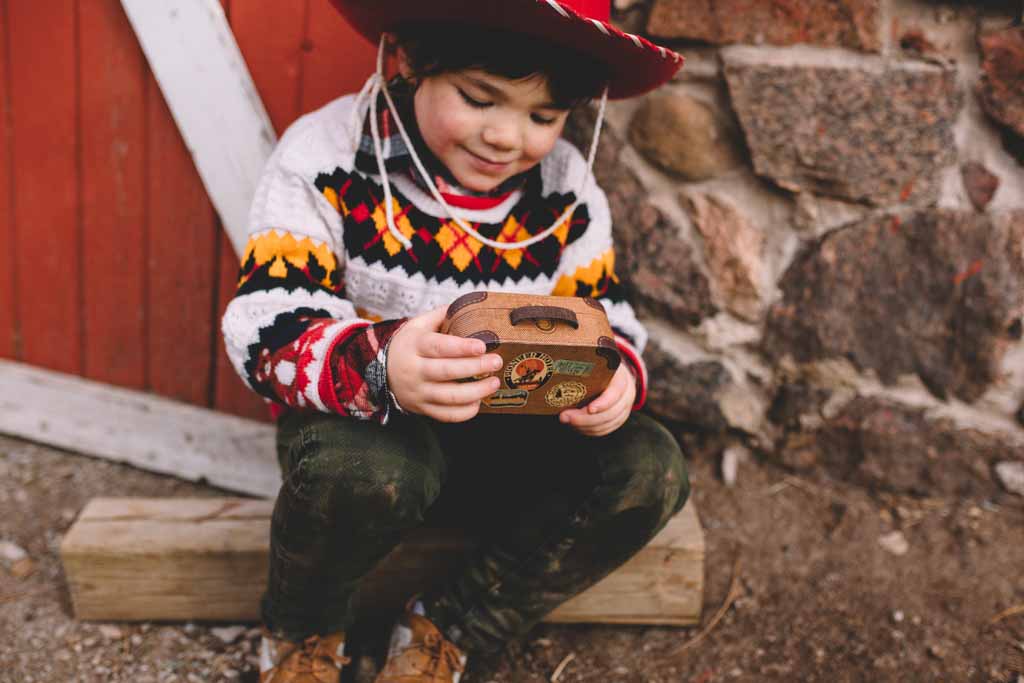
Final word
We all naturally play different roles in our lives. Chef, police officer, teacher, parent, therapist, friend… sometimes all in one day! Shakespeare said: ‘All the world’s a stage, and all the men and women merely players; they have their exits and their entrances, and one man in his time, plays many parts.”
Yet sadly the pleasurable, exploratory type of role-play tends to diminish as we grow older. But why should it be the reserve only of children? We can all indulge in snippets of our children’s dramatic fantasy worlds, and the resultant benefits, by watching and revelling in their role-play, or playing along with them when invited to.
Role-play is about finding out who we are and who we are not. According to Rosen it offers opportunities to invent, improvise, adapt, be creative with the world around you ‘and with the world inside your own head.’
In role-play we can be anyone, anywhere. It is a portal to a land of adventure. Where will yours take you?


